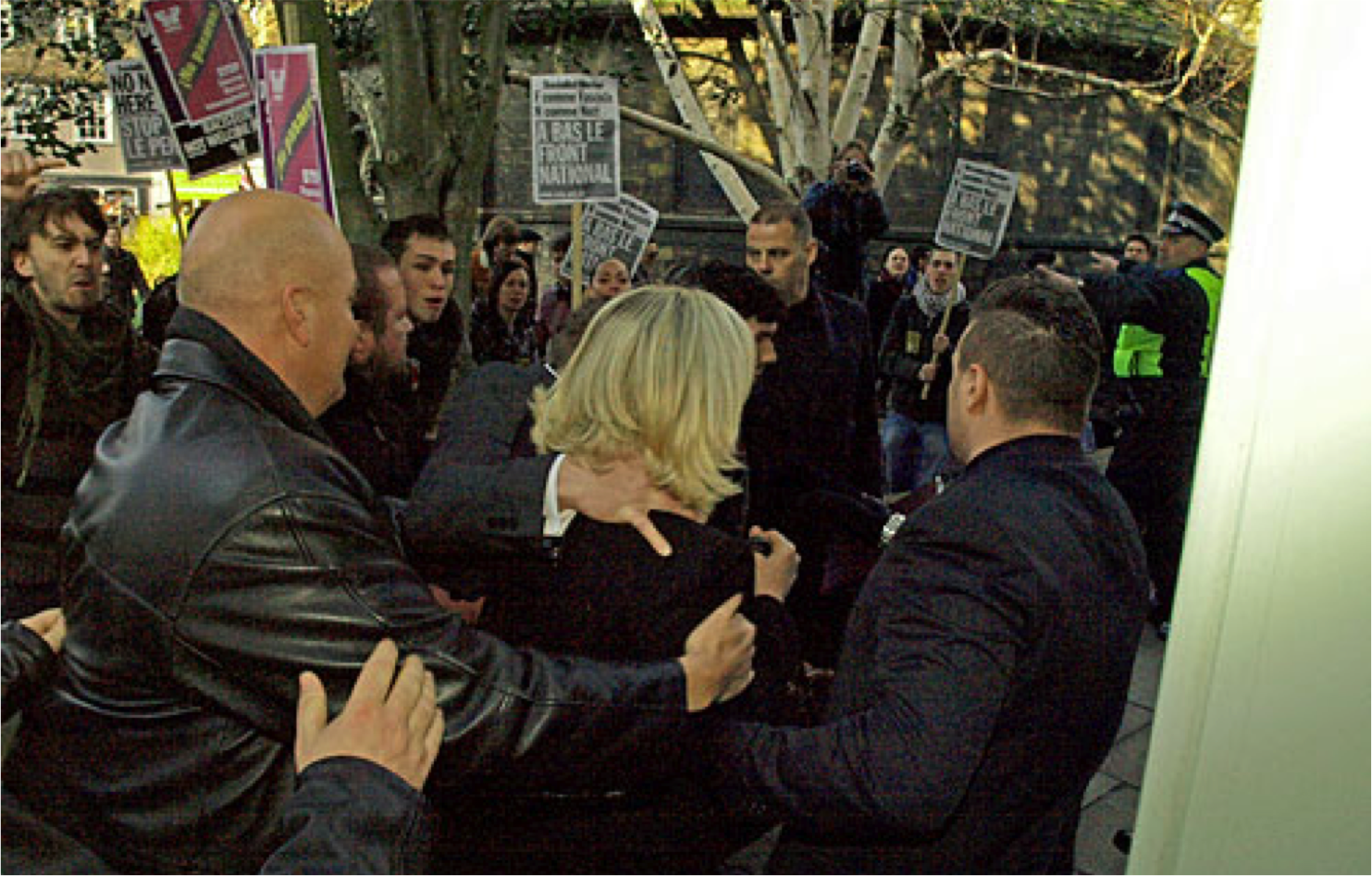“Upon my word, I think the truth is the hardest missile one can be pelted with.”— George Eliot (Middlemarch)
Oxford and Cambridge Universities have an awful lot in common. And last week was no exception. By inviting polarising political figures from the left and the right – George Galloway and Marine Le Pen, respectively – both institutions reaffirmed what is at once perhaps the most sacred and the most imperilled of all our values: the freedom of speech.
Le Pen was shuffled past protesters into the Cambridge Union last Tuesday – an organisation that prides itself on being a forum for all kinds of discussion and debate – to deliver a lengthy diatribe about the EU’s dilution of national identity. The patina of xenophilia and inclusiveness that she wanted to solidify for the audience was derided and scoured away once the floor was opened to questioning. In short, her politics were as unconvincing as ever.
So too with George Galloway. His decision to refuse to communicate with an Israeli opponent at a debate at Christ Church college was juvenile at best, discriminatory at worst. It did him no favours. But his words as he swept up his coat and opened the door to exit made me shiver: “I don’t debate with Israelis,” he said. Words full of hatred and ignorance and thoughtlessness. But, as I listened to him, I couldn’t help being reminded of the message those protesting against Marine Le Pen’s speech at the Union were effectively giving out as I headed past them into the chamber: ‘We don’t debate with Fascists’.
This is not a marginal issue. This is about me; this is about you; this is about the richness of the conversation we want to carry on when we can no longer participate in it. If free speech is something we want to protect, we’ve got to be prepared to put our necks on the line sometimes. Compromise is not an option. For to protect our freedom to speak as we please is to commit ourselves to hearing ideas that we consider rebarbative, repulsive and untrue.
Indeed, the best – the only – response to sinister and disgusting speech is more speech: truth, not censorship. Rather than give in to the temptation to stifle all that makes us cringe, we must be brave enough to engage with it. Our moral authority is never stronger than when we stand up for our beliefs: for whomever, wherever, whenever. The most admirable and effective response to bigotry and falsehood is to give them their say – because only then will we find out how baseless they really are.
Which is why the attempt to put a lid on ‘dangerous’ speech terrifies me. (Who decides for us what is ‘dangerous’ and what is not?) Sitting in the civil arena of the Cambridge Union during Le Pen’s lecture, the baying, drumming, chanting sounds outside prompted but one thought: why wasn’t all that energy being channelled into proving her wrong? Hardly courageous. More like cowardice, if you ask me.
If we’re confident of possessing arguments sound enough to defeat those of the Front National, then why should we be scared to engage in debate? Her risible and reproachable ideas are what should be opposed, not her right to say them. We should be using our voices not to hurl abuse from the other side of a brick wall but to defend our democracy, our freedom and our rights on our terms. And the last time I checked, they didn’t include suppression or censorship.
So bring it on.
We can’t be so myopic. As soon as we inhibit Marine Le Pen’s freedom to speak and think, our liberty suffers too. It’s a self-inflicted wound. Not only do we jeopardise our own thoughts, which are at any moment liable to be deemed too toxic to be heard, but we also willingly refuse perhaps the most critical intellectual duty we owe ourselves: the duty of listening.
Each and every time we muffle a dissenting voice, we forego the chance to reacquaint ourselves with why we believe what we believe. It was John Stuart Mill who posited that even if every living being were in agreement on the absolute truth of a concept, except one person, then it would be imperative – more so than ever – to hear him or her out. If he had a point, we would be better off for taking it on board; and if he were wrong, even in the most appalling manner, we would benefit from being forced to re-examine our greatest certainties. There would be nothing to lose, and everything to gain.
To be sufficiently brave to listen to opinions we find uncomfortable or contemptible is to be intellectually honest and rigorous enough to ask just how sure we are of what we believe as often as we possibly can. That’s all it boils down to. It’s never a waste of time to wonder how we can prove that the earth is spherical or that two and two make four, let alone to question why we hold our idiosyncratic political and religious convictions. We can’t afford to shirk self-criticism, forensic self-examination. No pursuit could be more worthy; nothing could be more precious.






